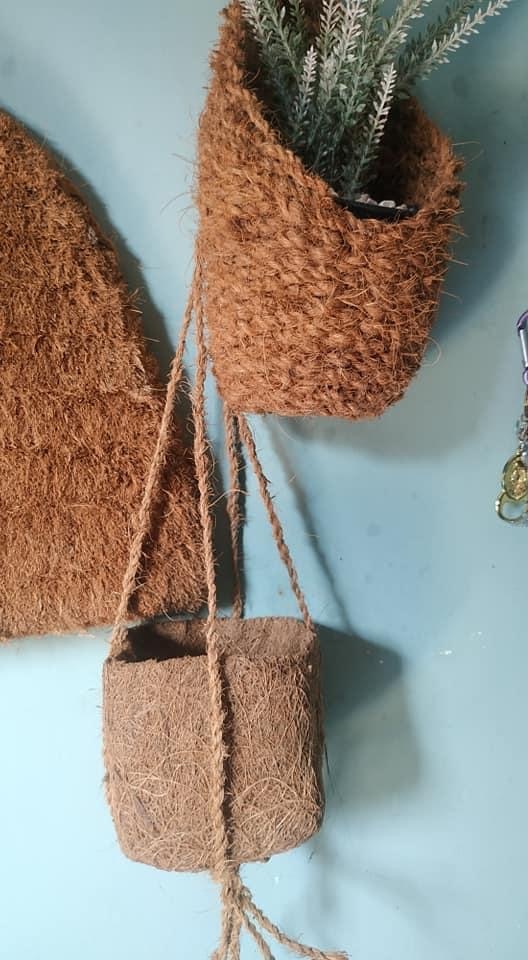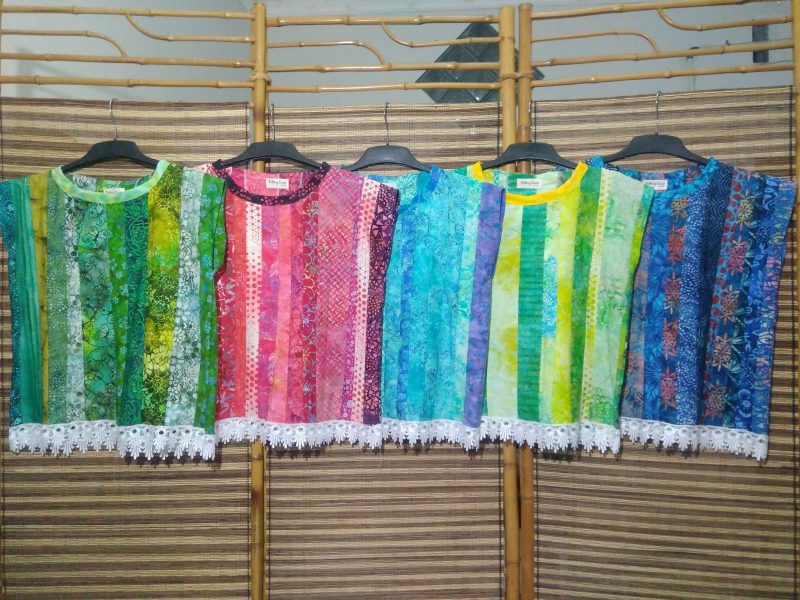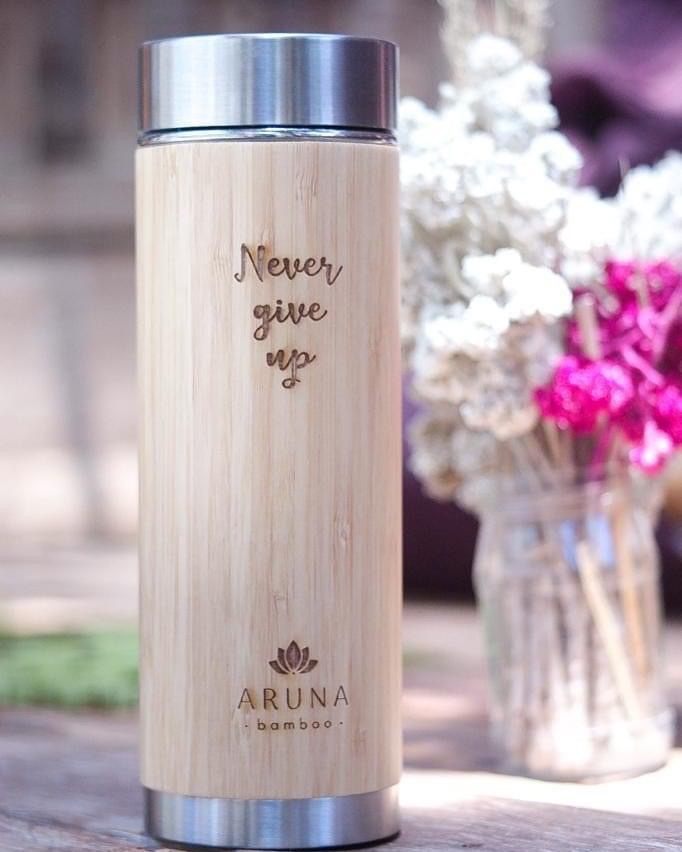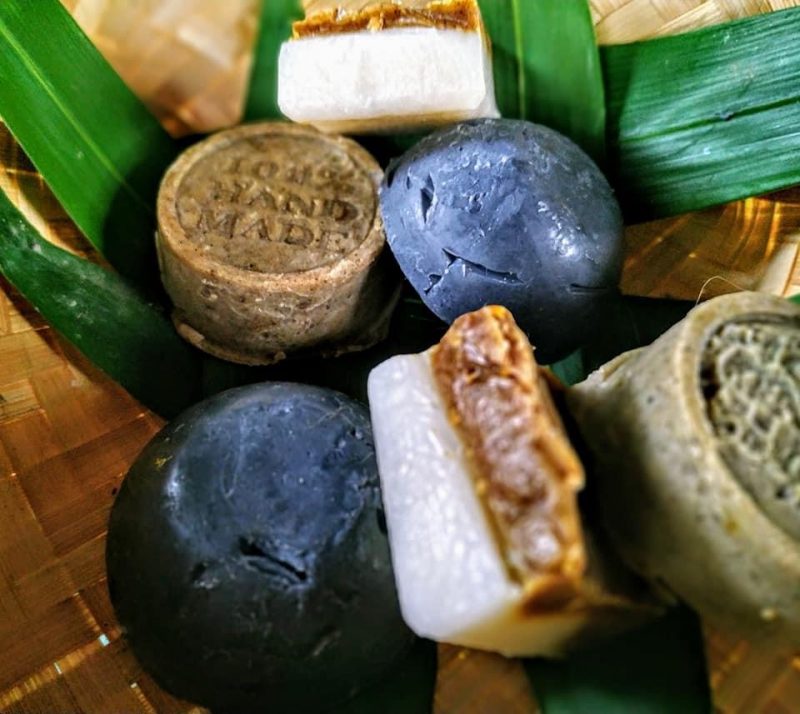The sustainability movement is strong and growing in Yogyakarta, a home of innovation and culture in Indonesia for centuries already.
These three businesses exemplify the work that’s being done to bring new products to market, using old and traditional materials.
Driving each of these businesses is the desire to bring about a change in attitudes and a return to what Indonesia does best; Filistay harnesses the use of the materials around us, Talking Scrap takes scrap batik and creates stunning fashion, and Aruna Bamboo takes advantage of the most traditional of materials to create products that solve modern problems.
Talking to the owners of each of these projects is an inspiration in itself, and they’re ready to take on the Indonesian and international markets with their products that rival anything you’ll find the west.
FILISTAY
Filistay at first seems to burst with wondrous chaos, yet take a seat on the upcycled bathtubs and you’ll see walls variously bamboo, hydroponic systems, and eco-bricks in a rainbow of colours.
The concept of Filistay can seem equally disparate at first glance – lots of projects and products scatter the cafe area and flow forth from Josh with energy and passion. Listen closely, and everything ties together.
“We were tired of trashing,” is the reason behind everything. Josh and Fili, both originally from Muntilan, Central Java, moved to Kasongan, a small village south of Yogyakarta city, nearly ten years ago.
“We were the trash family!” he laughs. “We started collecting plastic that was thrown into the river and dumped on the street.”
The community watched with curiosity until slowly they began to understand what the pair were doing and began to follow suit.
People soon realised that looking after the environment made things more pleasant. Fili helped instigate a trash bank project, educating the women in the village about separating their rubbish and making cash from their recyclables. Now, trading waste plastics for cash is second nature to most people.
“I met a farmer from Gunung Kidul, he’s selling bamboo flutes. I asked if he had a smaller size and he said “yes,” and he was shocked when I said I wanted it for straws,” explains Josh. The concept of what they do here is to bring together the wares of local craftspeople and sell them in an eco-shop.
Their product range includes deliciously scented, all-natural and handmade soaps, made with coconut oil made by a lady in the village, along with bamboo crafts, and reusable tote bags – all made locally to support the concept of Kasongan as an eco-village. The shop is due to open soon and you can place orders for products now through their Instagram account.
IG: rumijogja
FB: rumijog
TALKING SCRAP
Ney and her shining smile burst into the coffee shop, resplendent in a fuchsia, coral, and powder pink blouse to match her pink hair. As she sits, she presents me with the prettiest facemask I ever did see.
“It’s all made from scraps that I sew together,” she tells me enthusiastically. The fabric is a mix of complementary and contrasting colours and a clear nod towards the heritage of Indonesian batik.
Originally from Malang, East Java, Ney came to Jogja to study French and spent years as a private French teacher before moving into fashion. “I’m so tiny, I couldn’t find nice clothes to fit me. And I used to make and sell my own jewellery, so I decided to study fashion.”
The brand Talking Scrap has been selling online for a little while. The concept is to make fashion sustainable by recycling scrap fabric and making something beautiful and unique; there’ll never normally be more than ten of any one piece.
“I want everything I do to be sustainable. I go into boutiques and fabric shops and offer money for their scraps, but usually, they just tell me to take it!” With free raw materials and her creative flair, beautiful dresses and blouses are created. Most of the customers so far come from Europe, but Indonesians are slowly starting to understand the value in her work.
Dedicated to the cause of developing sustainable fashion, Ney also helps women in a village in Kulon Progo. They make patchwork dresses from scraps that would normally be sold on Malioboro Street. “I’ve put their dresses online and around 400 have already been sold,” she keenly tells me.
Talking Scrap is set to have an official launch at a show in Solo in August, all things being well. Ney is still developing her social media presence for this side of the business and can already be contacted for orders through her accounts, with content incoming soon.
IG: wedhanesarindhi
ARUNA BAMBOO
“Bamboo is the fastest growing plant on the planet, therefore it’s very sustainable and available when we need it,” explains Jessica. She’s set up Aruna Bamboo from the ground up, finding craftspeople and sources of bamboo in Central Java.
Aruna Bamboo specialises in creating thermoses, drinking straws, toothbrushes, cotton buds, and cutlery from this magical material. Orders come in from as far away as a field as Australia, India, the US, Germany, and Switzerland. “We specialise in customising the bamboo products with their own name,” bringing interest from all over the world.
The sustainability of their products doesn’t just derive from their base material, the business model is also rooted in ethics. Jessica’s relationships with local people crafting products, rather than mass-producing in factories, not only reduces pollution but also creates an income for rural areas.
Everything is thought through with the products, “especially the bamboo straws, we educate our crafters to create high-quality products. Along with being ethically processed, we do regular quality control, with a focus to reduce plastic; we try to not use plastic during production, packing, delivery.”
Jessica is young and dynamic, harnessing the power of Instagram to market her beautiful and minimalistic products to Indonesians. There’s a growing awareness of environmental issues that are driving people towards the products she brings to market. Orders can be made through the Aruna Bamboo Instagram page, where you can also request your personalised orders.
IG/FB: arunabamboo
WA: +628952711133




